Peugeot 308 SW vs Renault Clio - Differences and prices compared
Costs and Efficiency:
Price and efficiency are key factors when choosing a car – and this is often where the real differences emerge.
Renault Clio has a decisively advantage in terms of price – it starts at 16600 £, while the Peugeot 308 SW costs 30100 £. That’s a price difference of around 13535 £.
Fuel consumption also shows a difference: Peugeot 308 SW manages with 2.30 L and is therefore significantly more efficient than the Renault Clio with 4.10 L. The difference is about 1.80 L per 100 km.
Engine and Performance:
Power, torque and acceleration are the classic benchmarks for car enthusiasts – and here, some clear differences start to show.
When it comes to engine power, the Peugeot 308 SW has a somewhat edge – offering 195 HP compared to 158 HP. That’s roughly 37 HP more horsepower.
In acceleration from 0 to 100 km/h, the Peugeot 308 SW is slight quicker – completing the sprint in 7.70 s, while the Renault Clio takes 8.30 s. That’s about 0.60 s faster.
In terms of top speed, the Peugeot 308 SW performs somewhat better – reaching 225 km/h, while the Renault Clio tops out at 180 km/h. The difference is around 45 km/h.
There’s also a difference in torque: Peugeot 308 SW pulls distinct stronger with 300 Nm compared to 205 Nm. That’s about 95 Nm difference.
Space and Everyday Use:
Cabin size, boot volume and payload all play a role in everyday practicality. Here, comfort and flexibility make the difference.
Seats: offers more seating capacity – vs .
In curb weight, Renault Clio is evident lighter – 1124 kg compared to 1484 kg. The difference is around 360 kg.
In terms of boot space, the Peugeot 308 SW offers distinct more room – 551 L compared to 391 L. That’s a difference of about 160 L.
In maximum load capacity, the Peugeot 308 SW performs distinct better – up to 1483 L, which is about 307 L more than the Renault Clio.
When it comes to payload, Peugeot 308 SW minimal takes the win – 508 kg compared to 463 kg. That’s a difference of about 45 kg.
Who wins the race?
The Peugeot 308 SW proves to be outperforms in nearly all aspects and therefore becomes our DriveDuel Champion!
Peugeot 308 SW is the better all-rounder in this comparison.
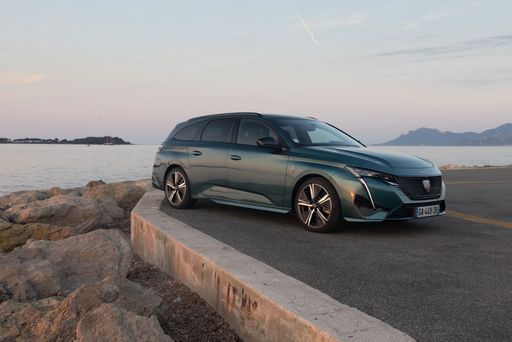 @ Peugeot / Stellantis Media
@ Peugeot / Stellantis Media
Peugeot 308 SW
Costs and Consumption
View detailed analysis
Engine and Performance
View detailed analysis
Dimensions and Body
View detailed analysis
Peugeot 308 SW
The Peugeot 308 SW blends French flair with estate practicality, dressing up daily chores in a surprisingly handsome package. Inside it's cleverly laid out and comfortable, and the composed, entertaining drive makes family duty feel a little less like a chore.
details @ Peugeot / Stellantis Media
@ Peugeot / Stellantis Media
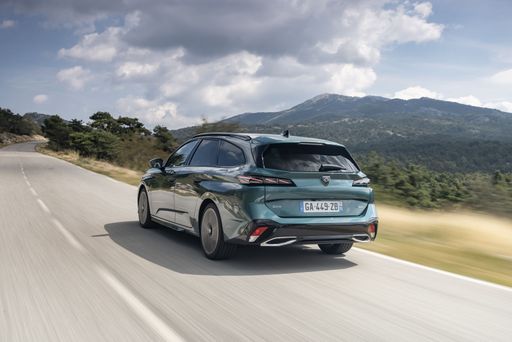 @ Peugeot / Stellantis Media
@ Peugeot / Stellantis Media
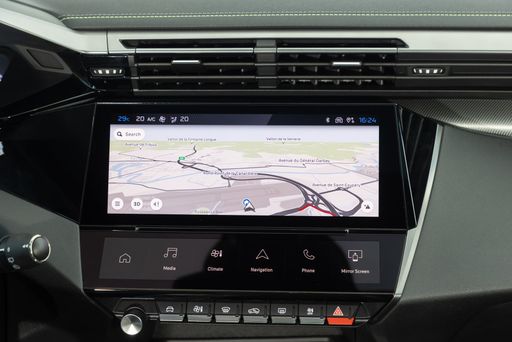 @ Peugeot / Stellantis Media
@ Peugeot / Stellantis Media
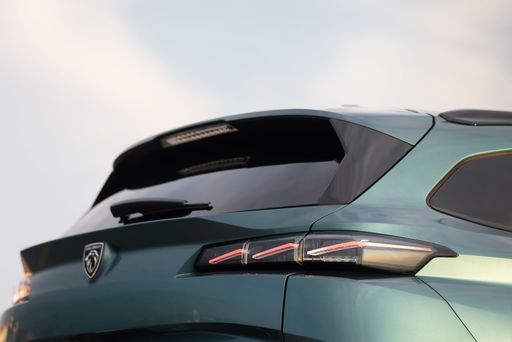 @ Peugeot / Stellantis Media
@ Peugeot / Stellantis Media
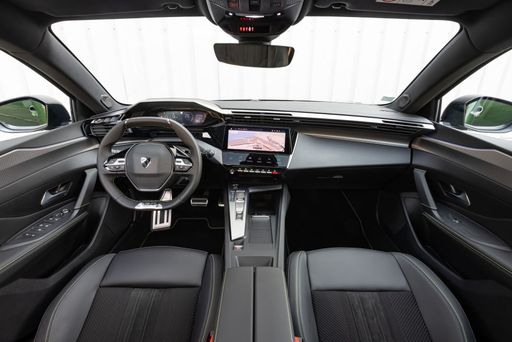 @ Peugeot / Stellantis Media
@ Peugeot / Stellantis Media
Renault Clio
The Clio punches above its weight with chic French styling and a surprisingly grown-up cabin that makes city driving feel effortlessly stylish. It's an easy-to-live-with choice that keeps ownership simple and even manages to put a grin on your face when the traffic gets dull.
details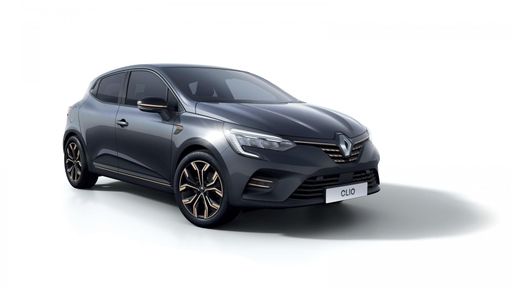 @ Renault Group Media
@ Renault Group Media
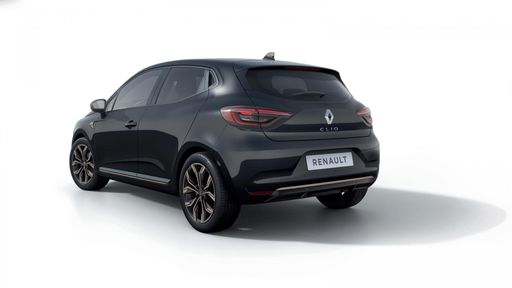 @ Renault Group Media
@ Renault Group Media
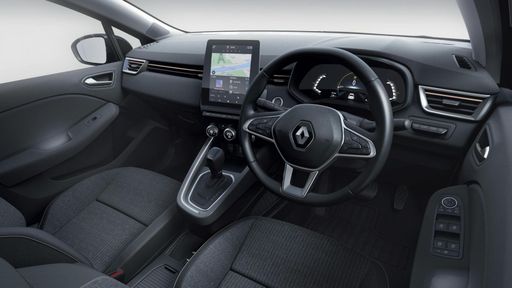 @ Renault Group Media
@ Renault Group Media
 @ Peugeot / Stellantis Media
@ Peugeot / Stellantis Media
|
 @ Renault Group Media
@ Renault Group Media
|
|
|
|
Costs and Consumption |
|
|---|---|
|
Price
30100 - 43800 £
|
Price
16600 - 23700 £
|
|
Consumption L/100km
2.3 - 5.1 L
|
Consumption L/100km
4.1 - 5.3 L
|
|
Consumption kWh/100km
15.20 kWh
|
Consumption kWh/100km
-
|
|
Electric Range
78 - 410 km
|
Electric Range
-
|
|
Battery Capacity
0.40 kWh
|
Battery Capacity
0.60 kWh
|
|
co2
0 - 130 g/km
|
co2
92 - 121 g/km
|
|
Fuel tank capacity
42 - 52 L
|
Fuel tank capacity
39 - 42 L
|
Dimensions and Body |
|
|---|---|
|
Body Type
Estate
|
Body Type
Hatchback
|
|
Seats
5
|
Seats
5
|
|
Doors
5
|
Doors
5
|
|
Curb weight
1484 - 1783 kg
|
Curb weight
1124 - 1331 kg
|
|
Trunk capacity
467 - 551 L
|
Trunk capacity
301 - 391 L
|
|
Length
4636 mm
|
Length
4053 - 4116 mm
|
|
Width
1852 mm
|
Width
1768 - 1798 mm
|
|
Height
1438 mm
|
Height
1440 - 1451 mm
|
|
Max trunk capacity
1402 - 1483 L
|
Max trunk capacity
979 - 1176 L
|
|
Payload
417 - 508 kg
|
Payload
398 - 463 kg
|
Engine and Performance |
|
|---|---|
|
Engine Type
Petrol MHEV, Diesel, Plugin Hybrid, Electric
|
Engine Type
Full Hybrid, Petrol
|
|
Transmission
Automatic
|
Transmission
Automatic, Manuel
|
|
Transmission Detail
Dual-Clutch Automatic, Automatic Gearbox, Reduction Gearbox
|
Transmission Detail
Automatic Gearbox, Manual Gearbox, Dual-Clutch Automatic
|
|
Drive Type
Front-Wheel Drive
|
Drive Type
Front-Wheel Drive
|
|
Power HP
131 - 195 HP
|
Power HP
67 - 158 HP
|
|
Acceleration 0-100km/h
7.7 - 10.9 s
|
Acceleration 0-100km/h
8.3 - 17.1 s
|
|
Max Speed
170 - 225 km/h
|
Max Speed
160 - 180 km/h
|
|
Torque
230 - 300 Nm
|
Torque
95 - 205 Nm
|
|
Number of Cylinders
3 - 4
|
Number of Cylinders
3 - 4
|
|
Power kW
96 - 144 kW
|
Power kW
49 - 116 kW
|
|
Engine capacity
1199 - 1598 cm3
|
Engine capacity
999 - 1789 cm3
|
General |
|
|---|---|
|
Model Year
2025
|
Model Year
2023 - 2026
|
|
CO2 Efficiency Class
C, D, B, A
|
CO2 Efficiency Class
C, D, B
|
|
Brand
Peugeot
|
Brand
Renault
|
Is the Peugeot 308 SW offered with different drivetrains?
The Peugeot 308 SW is available as Front-Wheel Drive.
The prices and data displayed are estimates based on German list prices and may vary by country. This information is not legally binding.
